From Barra de Navidad to Puerto Vallarta
On February 4th we left the beautiful marina of Barra de Navidad heading to Puerto Vallarta.
Just a few miles north of Barra de Navidad lies Bahia de Cuastecomate where we spent a night at the anchor, did some nice snorkeling and enjoyed a local restaurant..
The following day we reached the close by bay of Tenacatita where we anchored in the middle of lots of other boats; in fact, we realized this is a very popular anchorage, facing a long, white sand beach, and where there is the estuary of a small “rio” that we read was worth to visit. When we tried to reach the entrance of the river by dinghy, we realized that we would have had to wait until the next morning for the hide tide. In fact, the entrance was extremely shallow, with breaking waves. We then decided to land the dinghy on the beach and to take advantage of a panga that was about to start a trip upstream for a few other tourists. The panga passed through a tunnel of mangroves where lots of birds and crabs found shelter; however, the highlight of the tour were the several crocodiles peacefully sunbathing along the sides of the river. All together the trip lasted less than an hour; we spent the rest of the morning strolling along the white sand beach where few well integrated resorts were built.
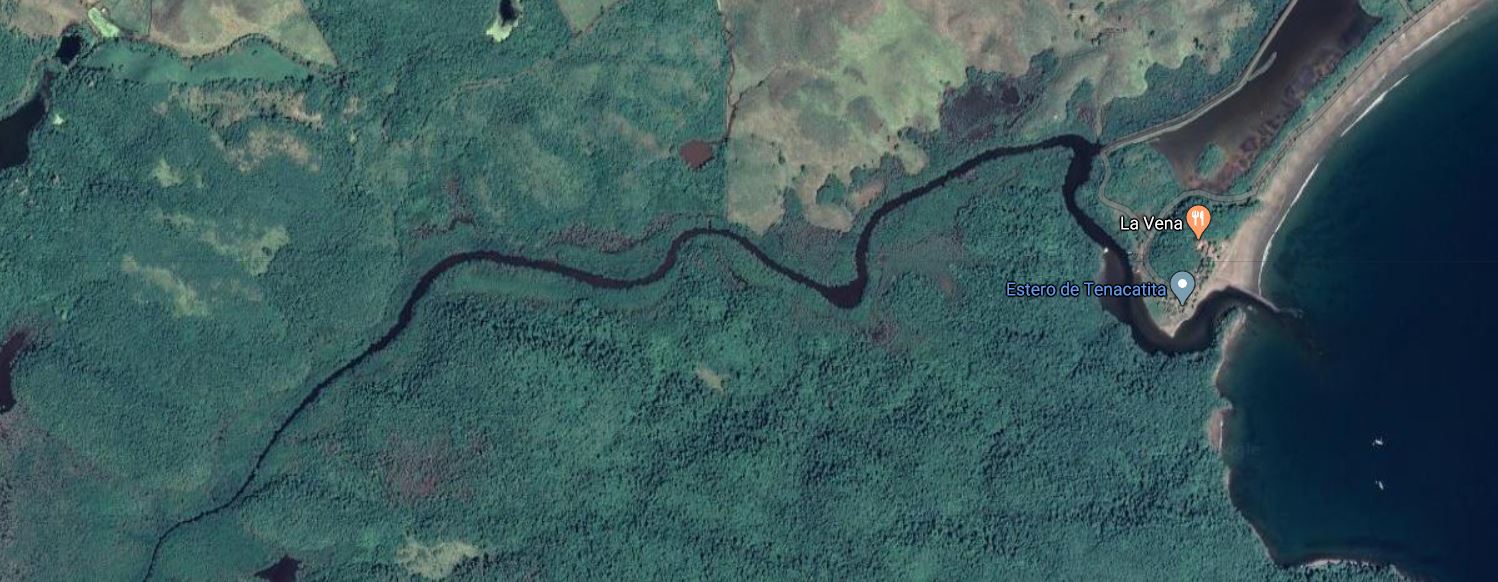
Trip up the estuary of Tenacatita
The next stop northbound was Careyes which impressed us for the colorful tourist residences facing the bay. This bay was fringed by three cozy beaches: Playa Blanca, part of an exclusive resort where we were not allowed to land; Playa Rosa and Playa Careyes, part of the tourist village complex. We left the dinghy in Playa Rosa and climbed up the stairs leading to the very colorful village characteristic for the original and peculiar architecture.
When we left Careyes the next morning, we passed by the enchanting little bay of Paraiso; this place is worth the name, fringed by lots of little sandy coves where you would enjoy playing Robinson Crusue for a few days.
Unfortunately, anchoring was quite uncomfortable due to the swell, so we moved on to Bahia Chamela where we found a beautiful and sheltered anchorage in front of Isla Cocinas. We circumnavigated the island by dinghy and had the chance to admire the very different kinds of cactuses being the most represented vegetation of the island.
On our way to Puerto Vallarta, we stopped in two other places: Punta Ipala, where we just spent the night, and Yelapa, a very picturesque site that we reached after several hours dealing with the winds and currents off Cabo Corrientes. Given the difficult anchorage in the bay, we were happy to find a buoy for rent to moor for the night.
Yelapa is a fisherman village that has developed into a touristic destination for people who like the peaceful and genuine atmosphere of a traditional Mexican place as opposed to the many resorts otherwise available. We had a great walk along the shoreline and then up to a small waterfall. A very enjoyable place!



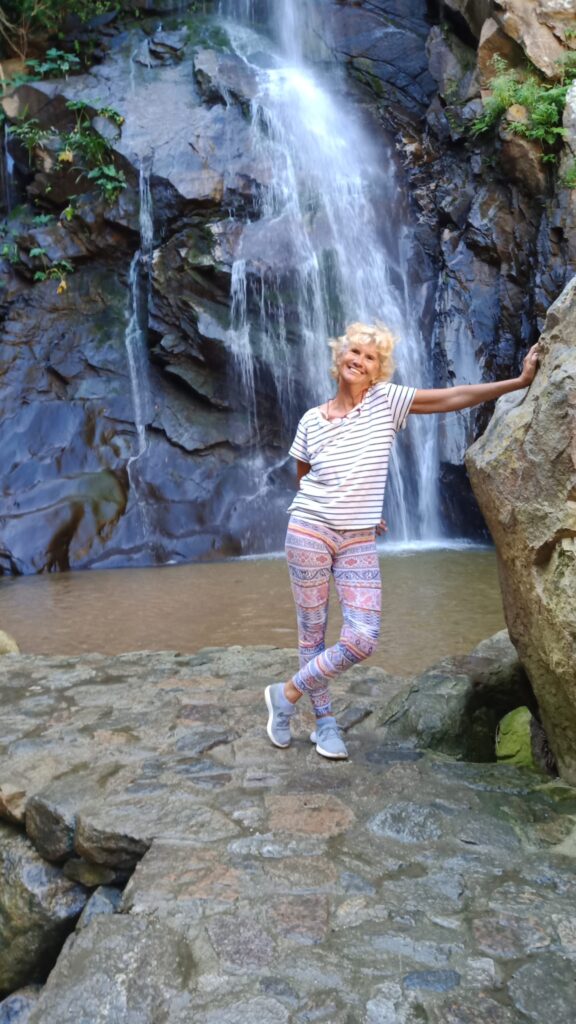
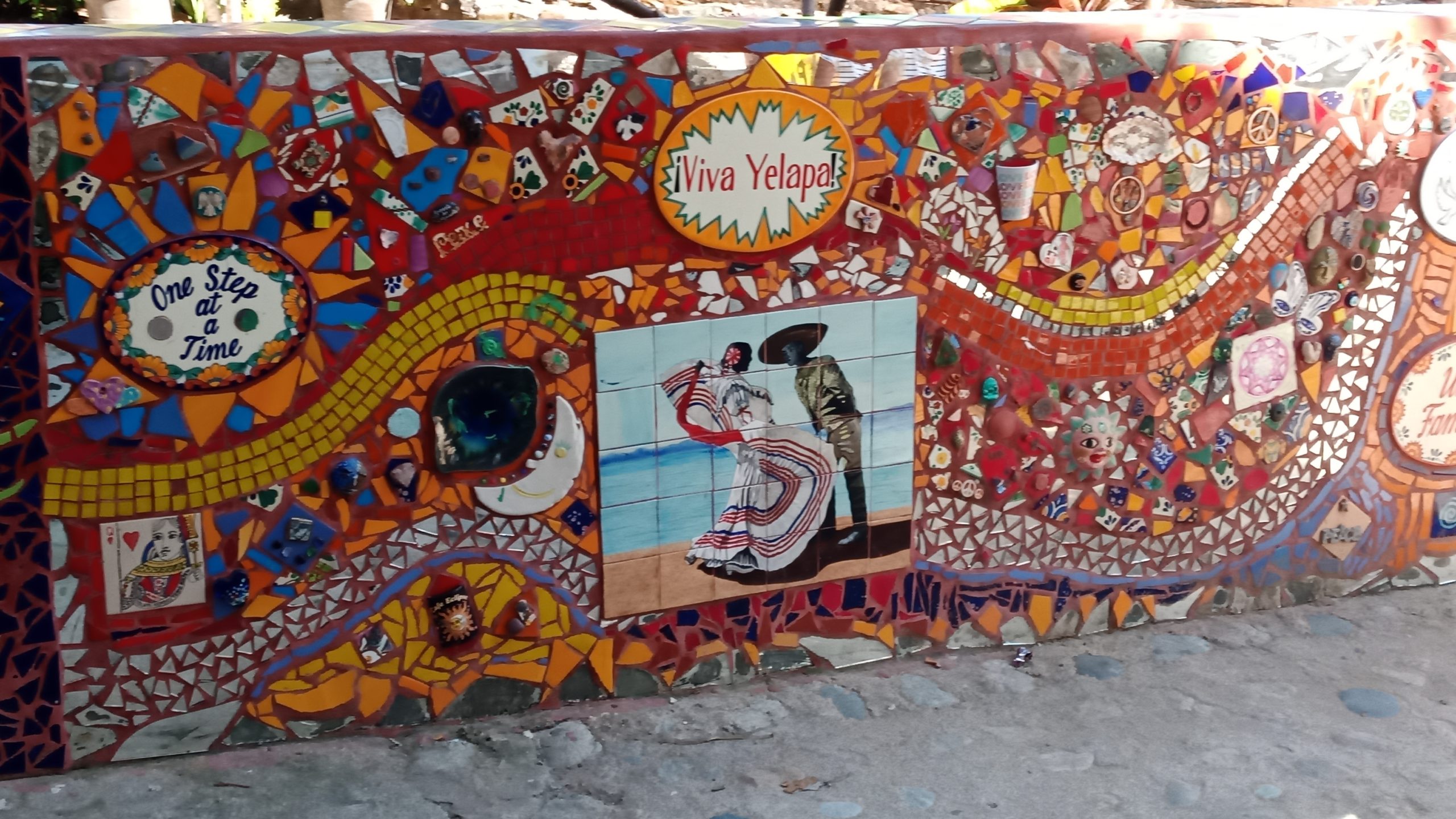


On February 11th around 2:00 pm we arrived in Puerto Vallarta where we decided to spend a week to do some very due maintenance work on the boat before taking on board our friends from France who were arriving on the 19th.
Puerto Vallarta, or PV – as local people call it, is a large city mostly developed on the shoreline of a good portion of the large Banderas Bay. It is an important tourist destination, mainly for North American tourists, to a point where you could say is quite “Americanized”. The several permanent and occasional visitors can find lots of bars, coffee shops, restaurants, and high level accommodations to satisfy any wish. South of the modern city there is the “old” town, with its beautiful “malecon”, a popular, long walk along the beach, that during the night dresses up with music and entertainments.
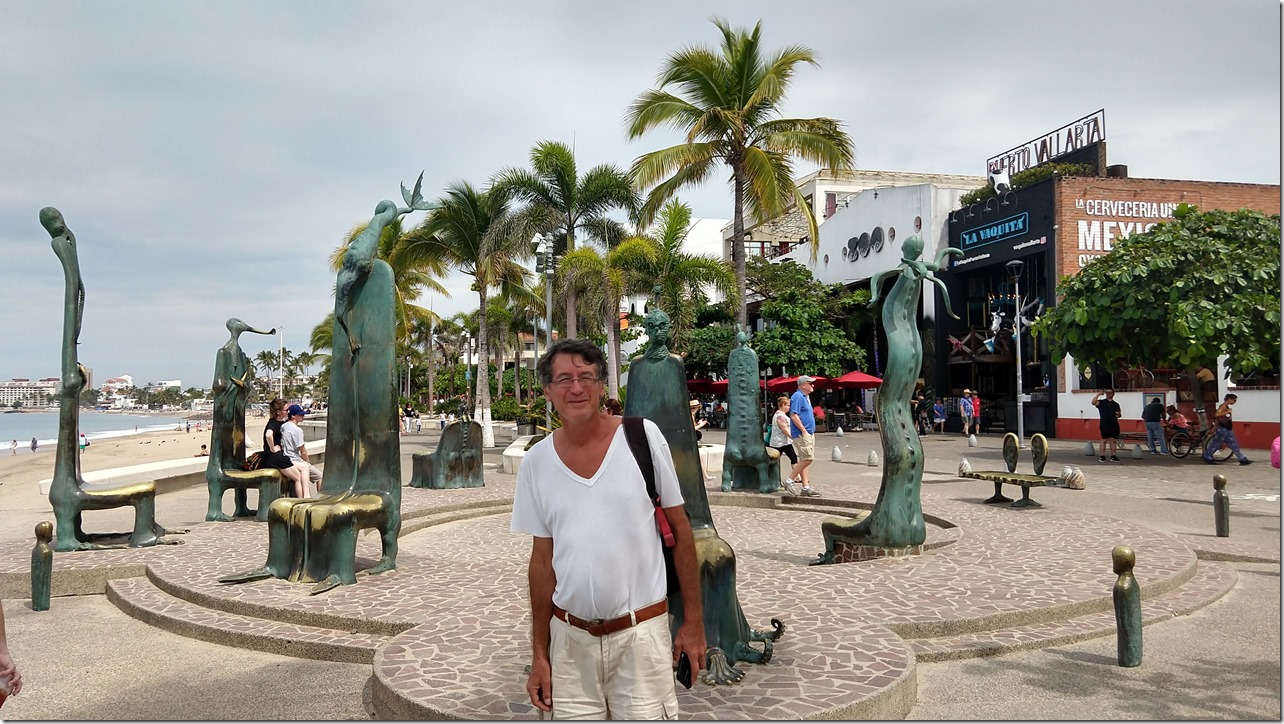
Feb 15th – Notice the Cerveceria and Oyster Bar Union in the background, where we had dinner in the evening
Out of the four marinas available in Banderas Bay, we decided to stay in the Marina Puerto Vallarta, close to the only chandlery store in the area and to many other services. We were able to find professionals who helped us with the several works we had to carry out, i.e.: the widening of the lazy bag to properly accommodate the new main sail, the installation of additional stainless steel plates to the back of the dinghy to allow the fixing of two wheels to make it humanely transportable when landing on the beach, etc etc. We met professionals who did a good job for a quite reasonable price. We spent most of the week back and forth to the workshops to check that everything was properly made, though we had also free time to visit the botanical garden and to enjoy good food in excellent restaurants where we satisfied our appetite for oysters – believe it or not, Mexican oysters are as good as the French ones, with a wide selection of different types!
Seven days flew away, and on February 19th at night our French friends landed at the airport where we went to pick them up.
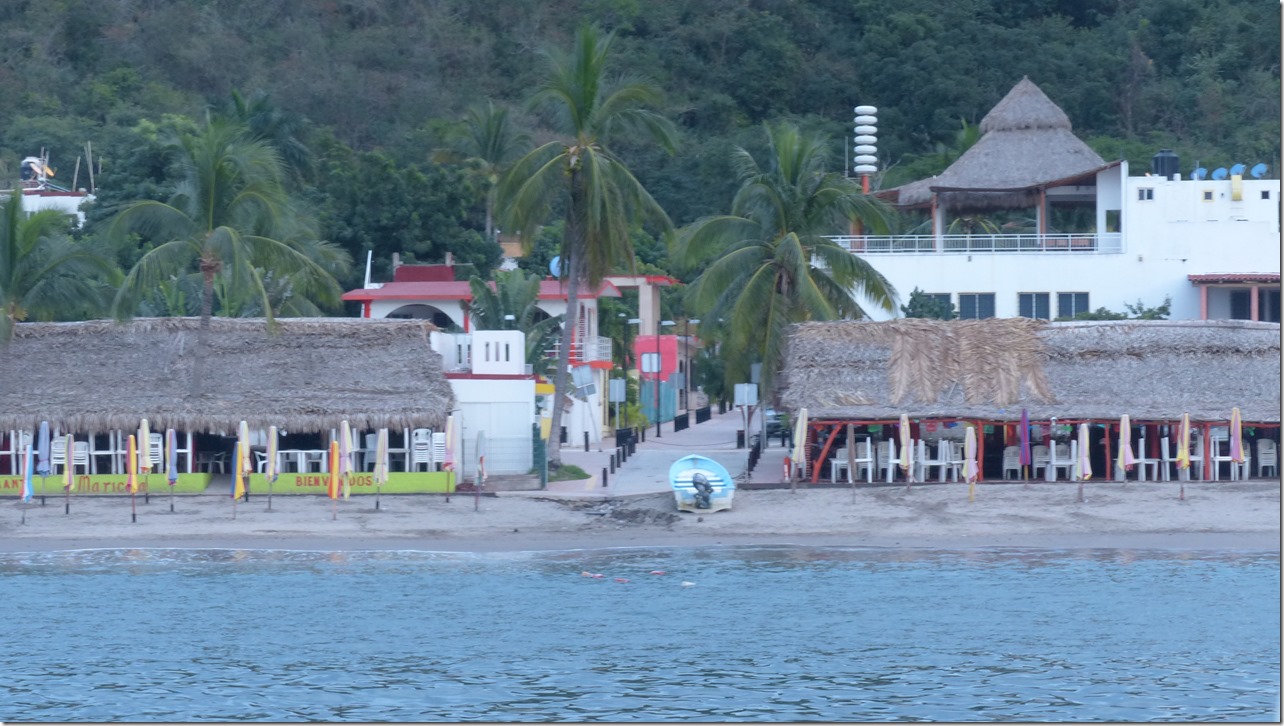
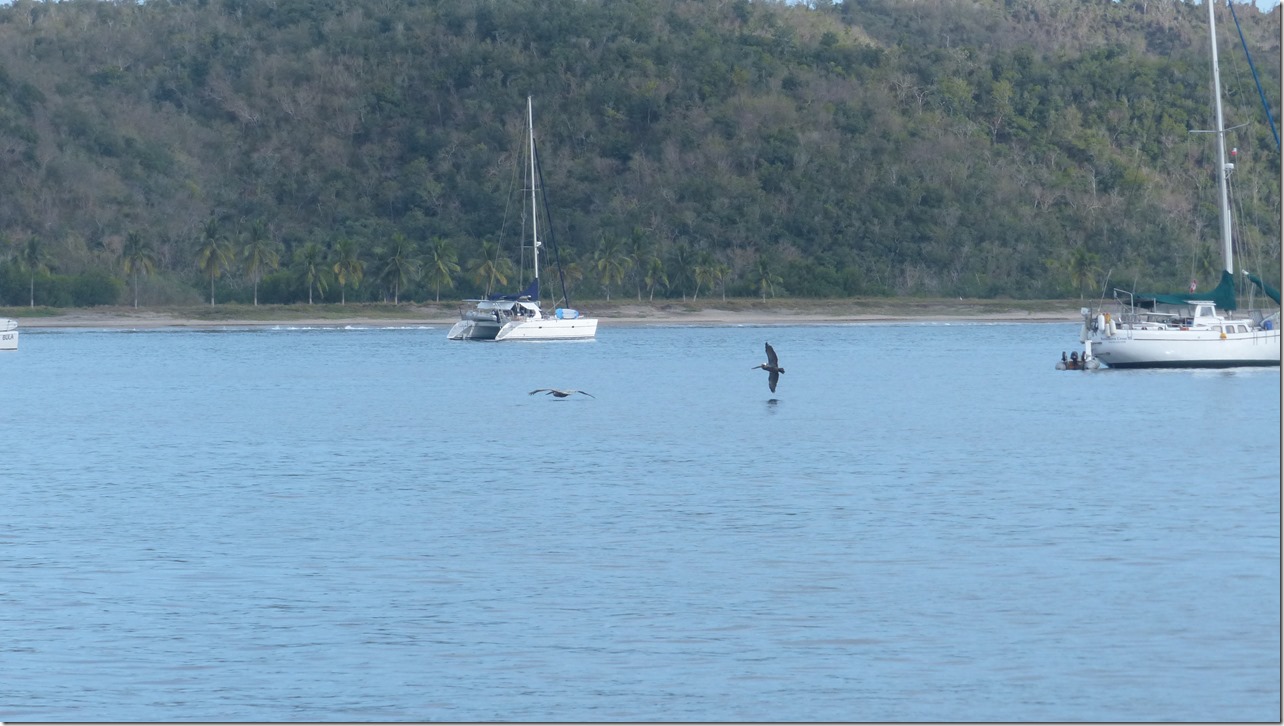
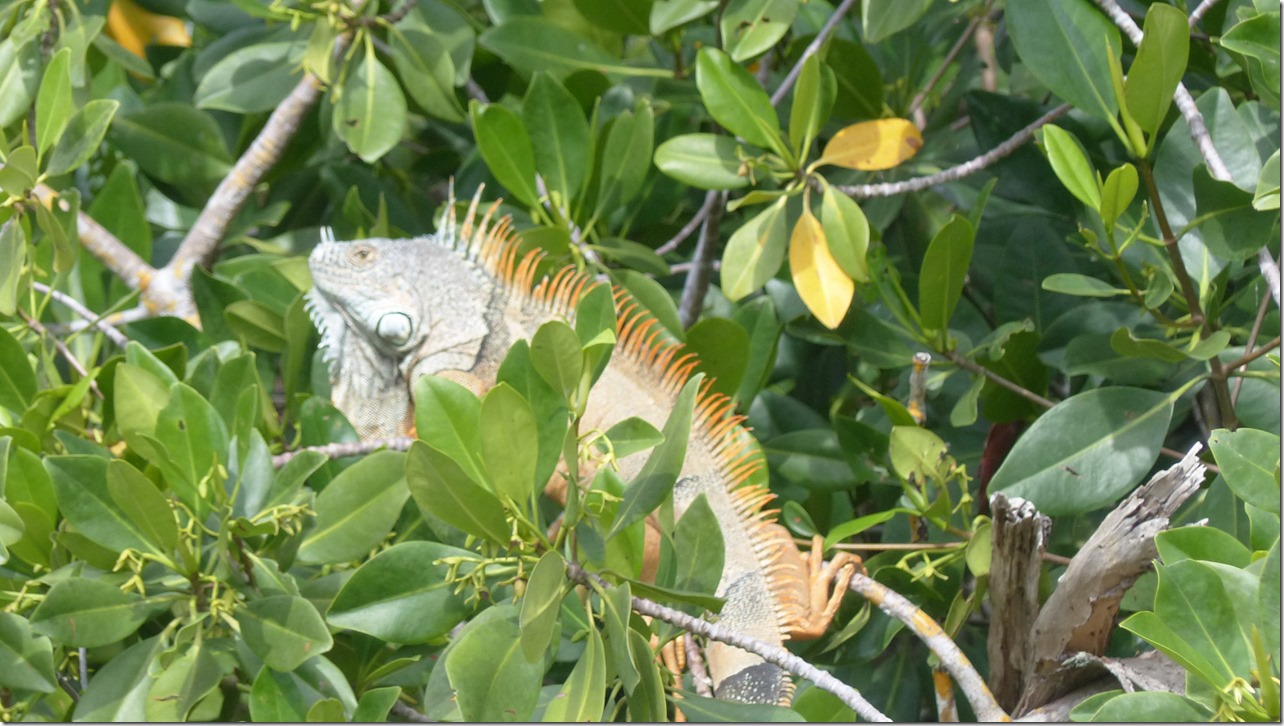
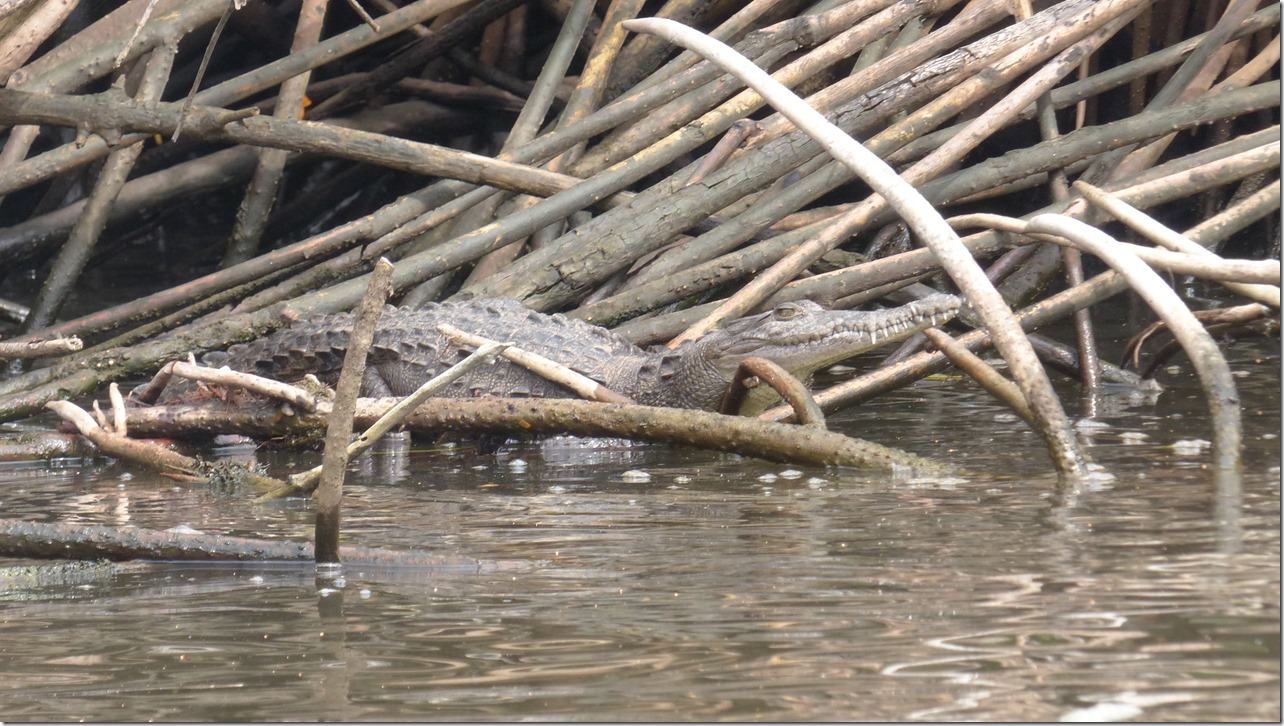
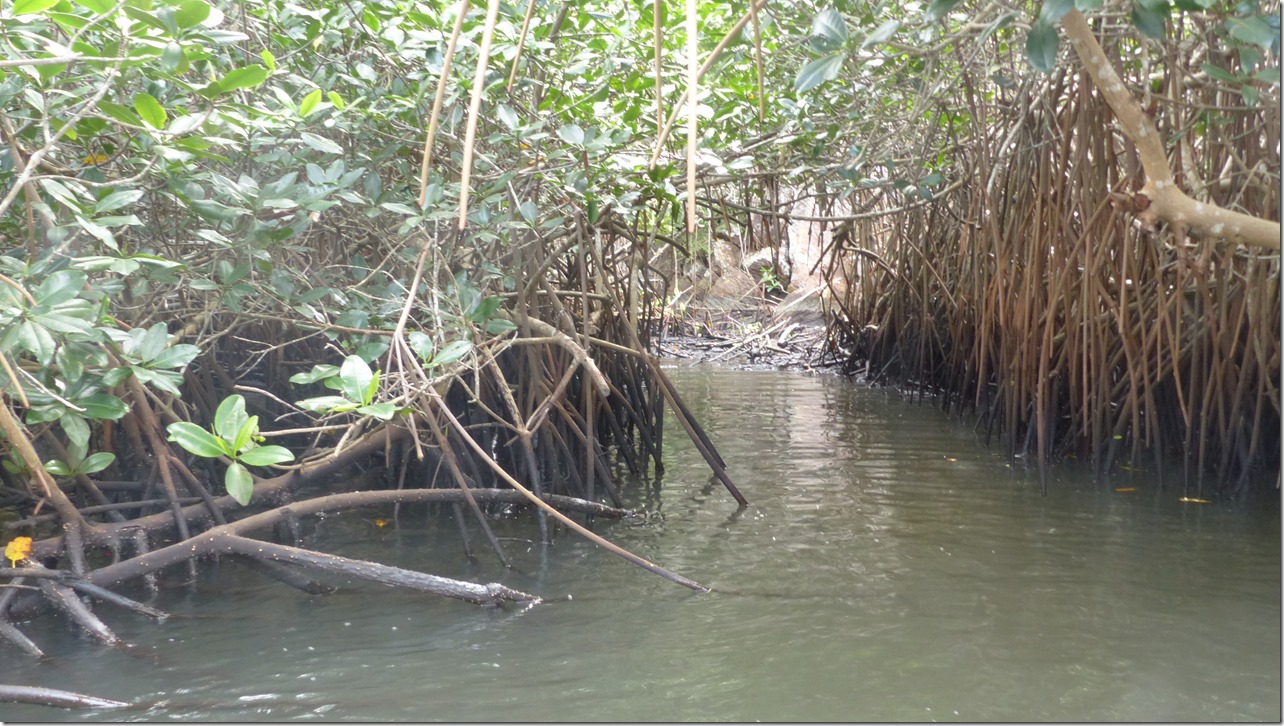
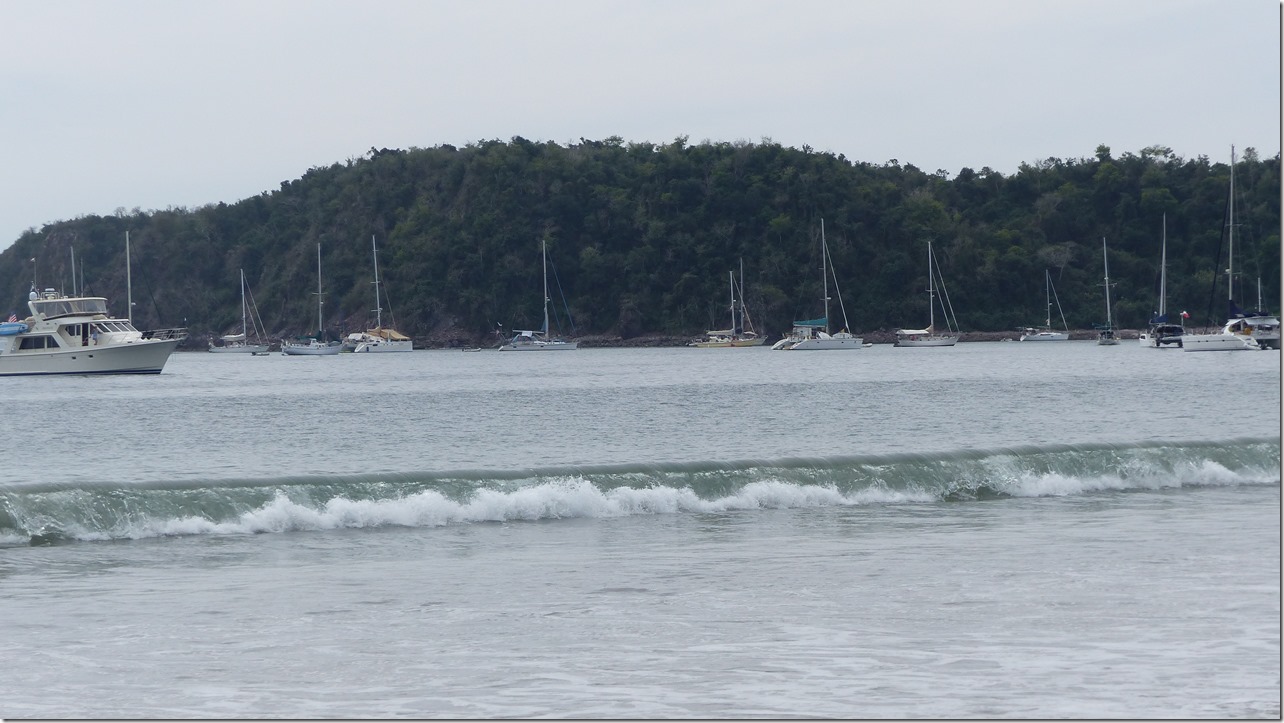
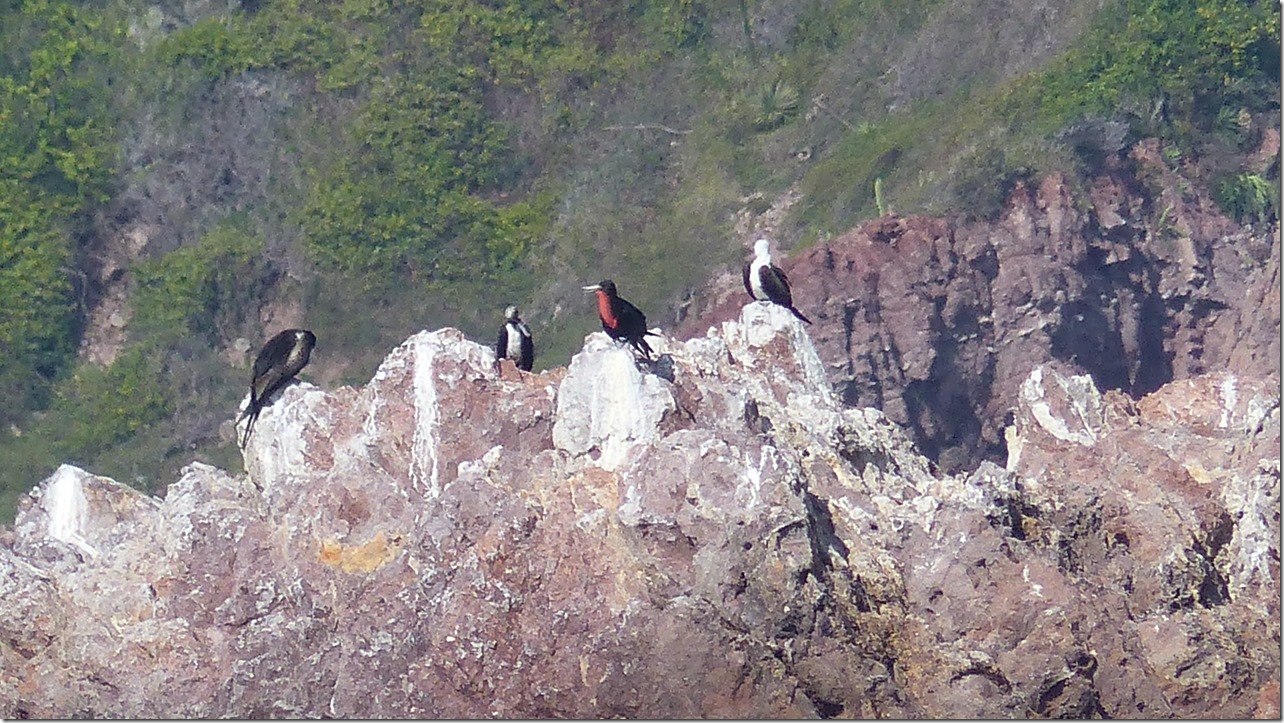
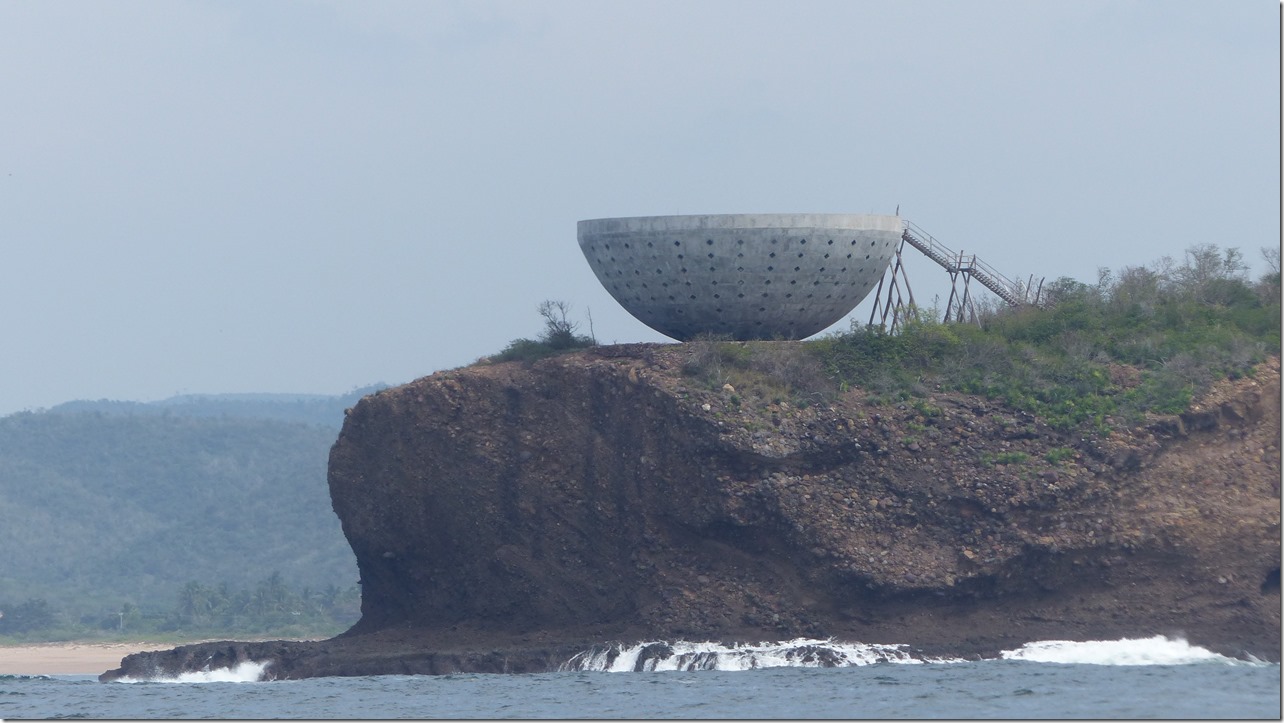
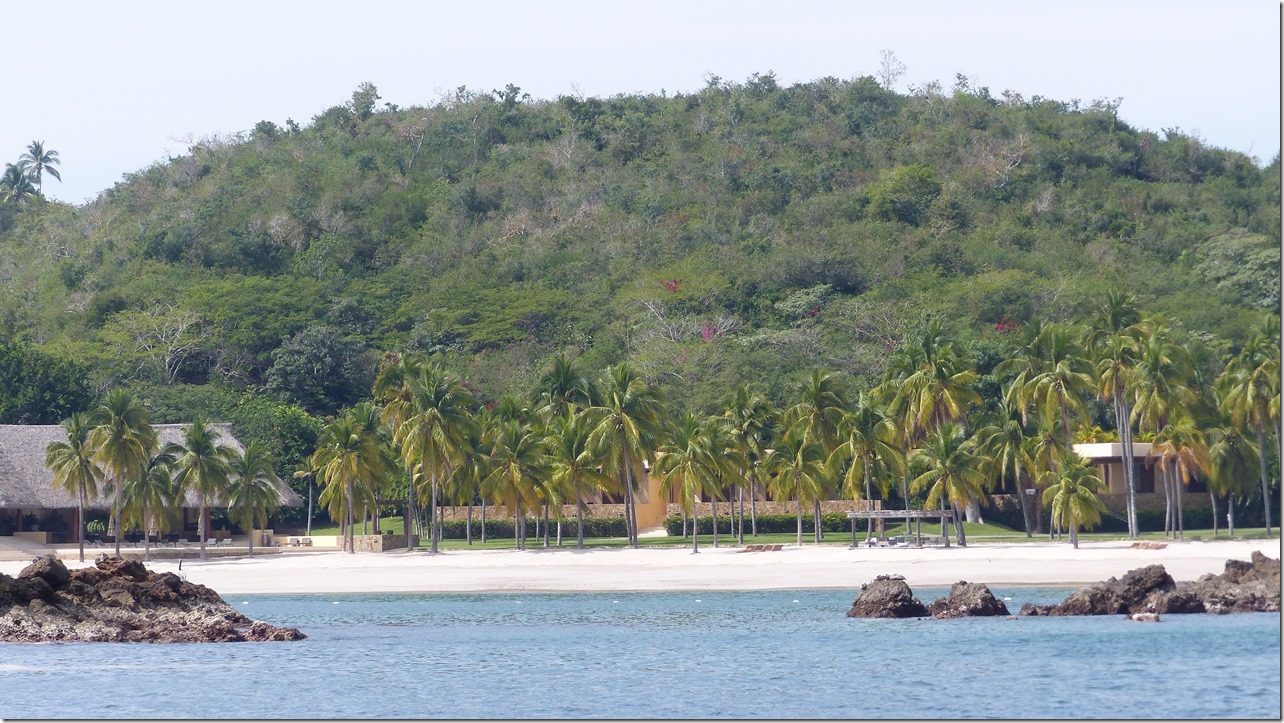
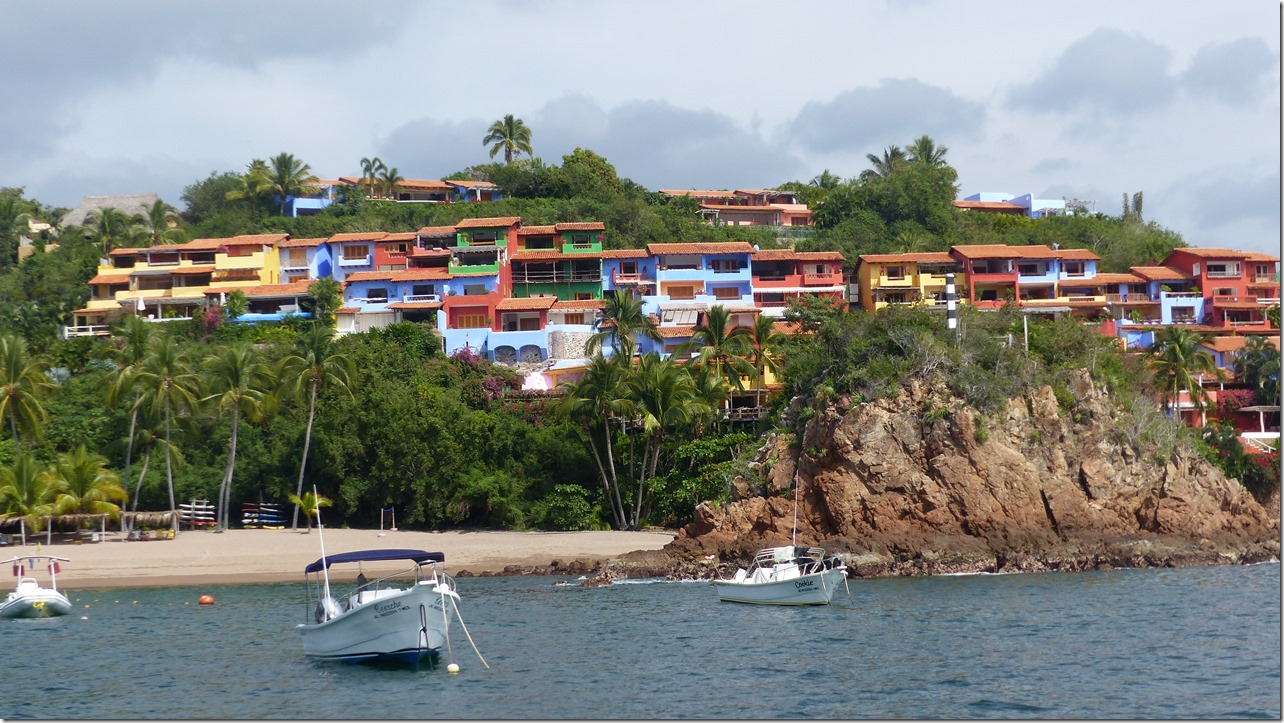
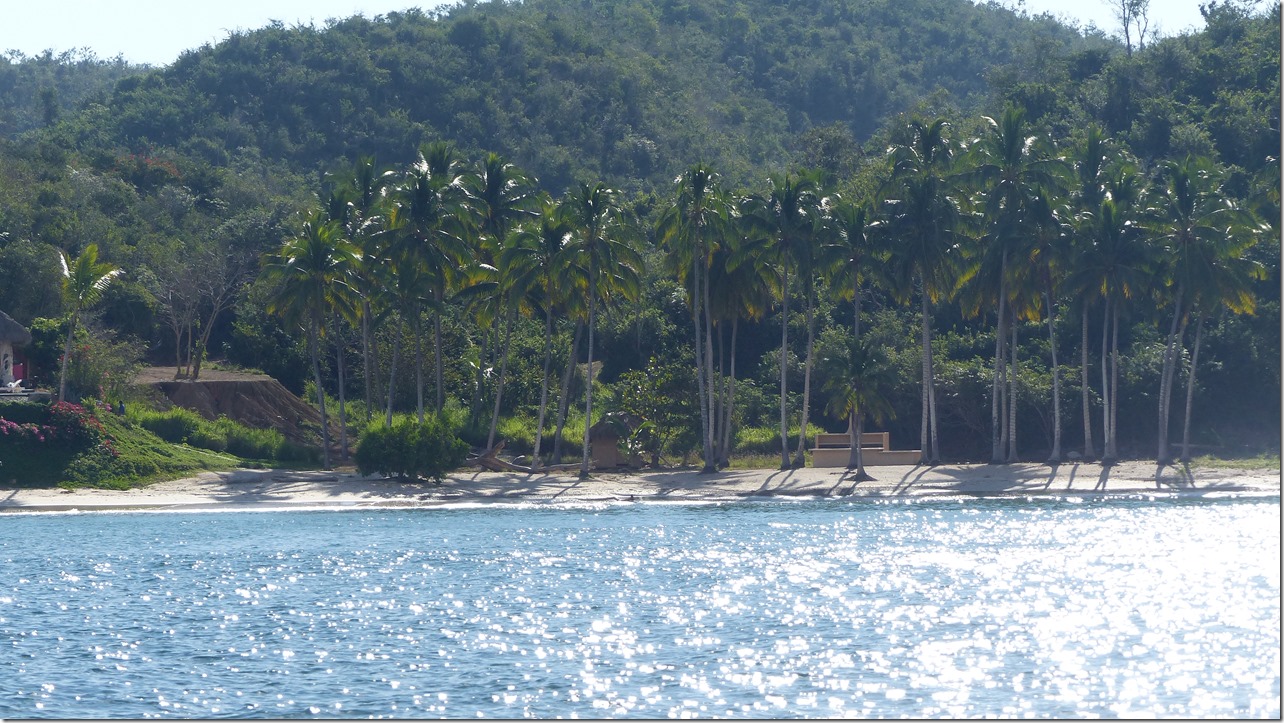
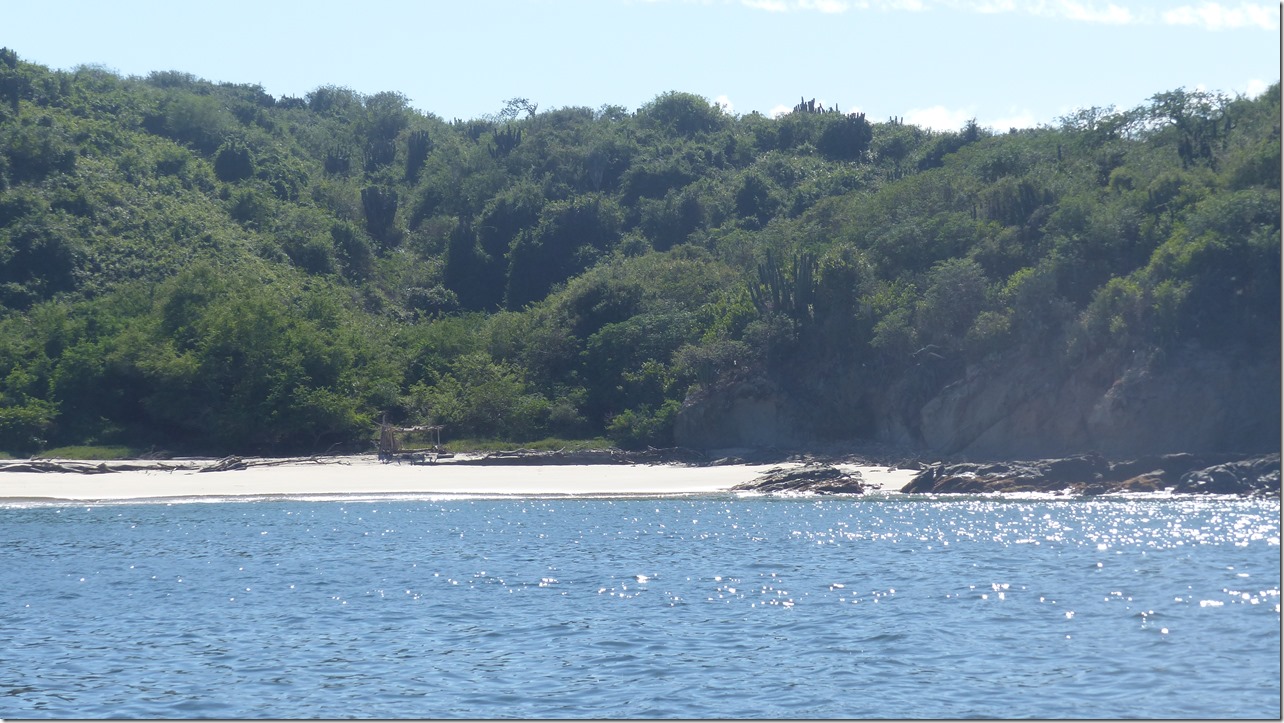

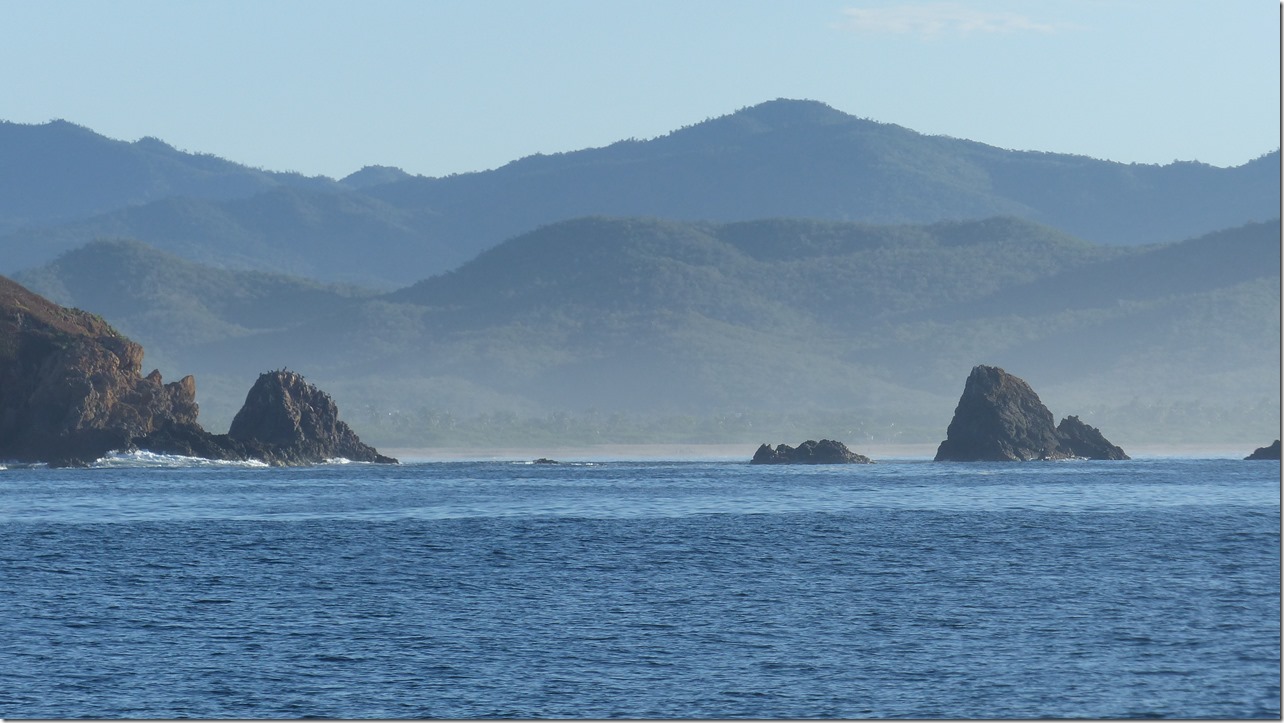
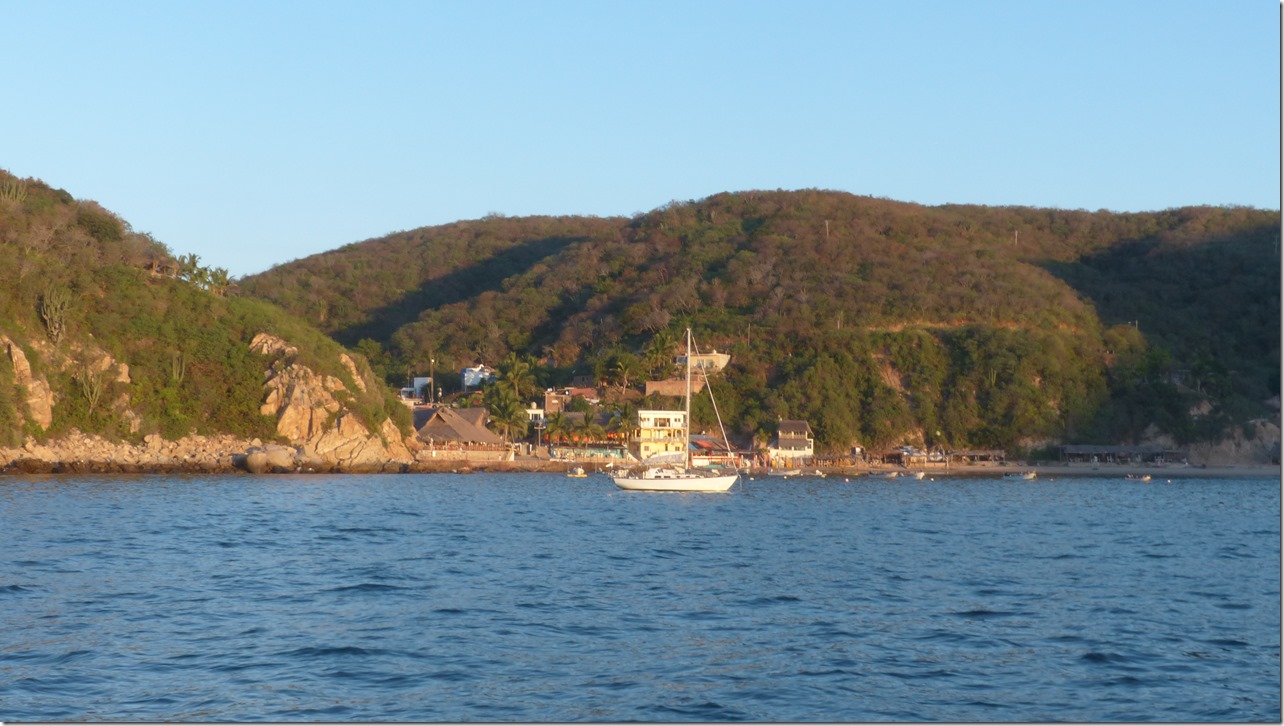
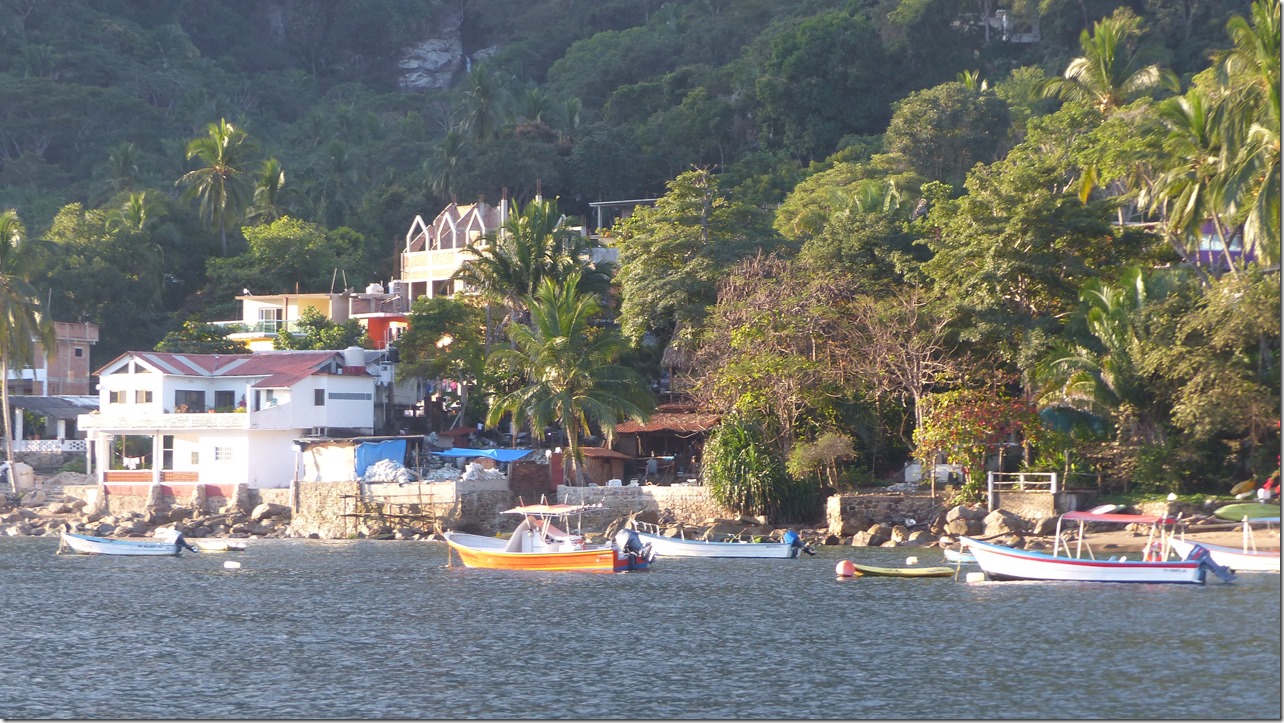

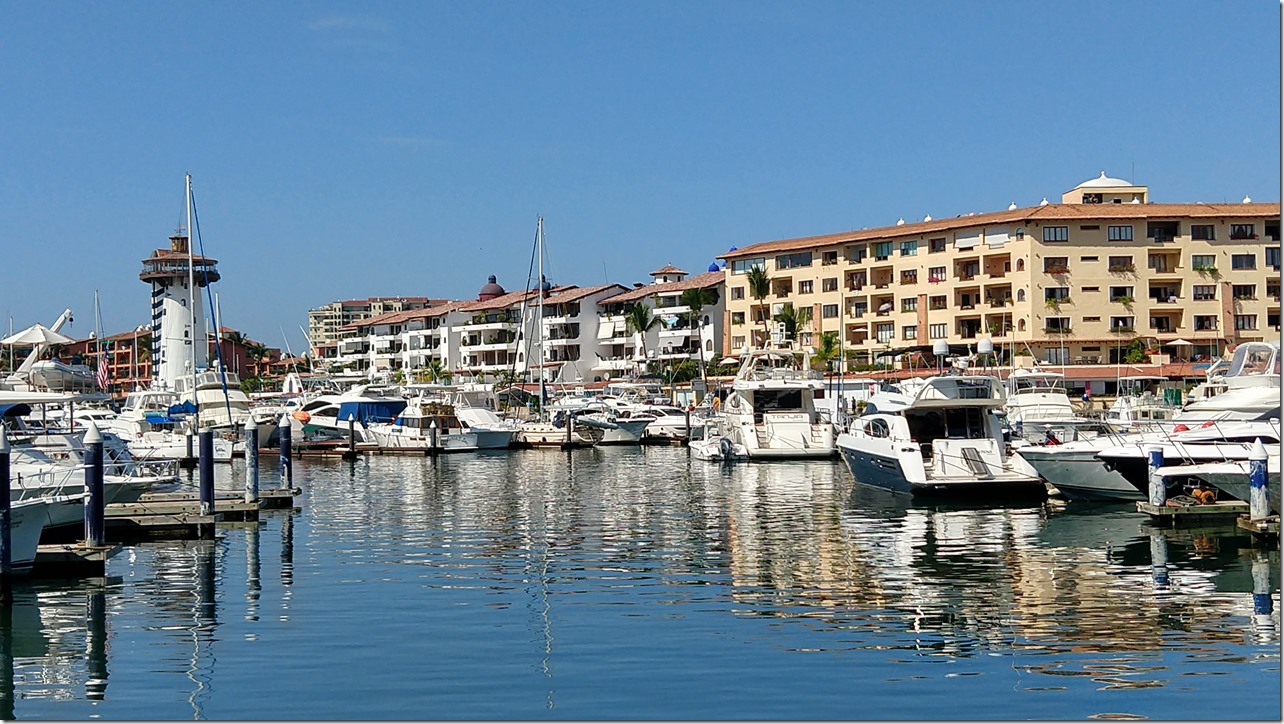
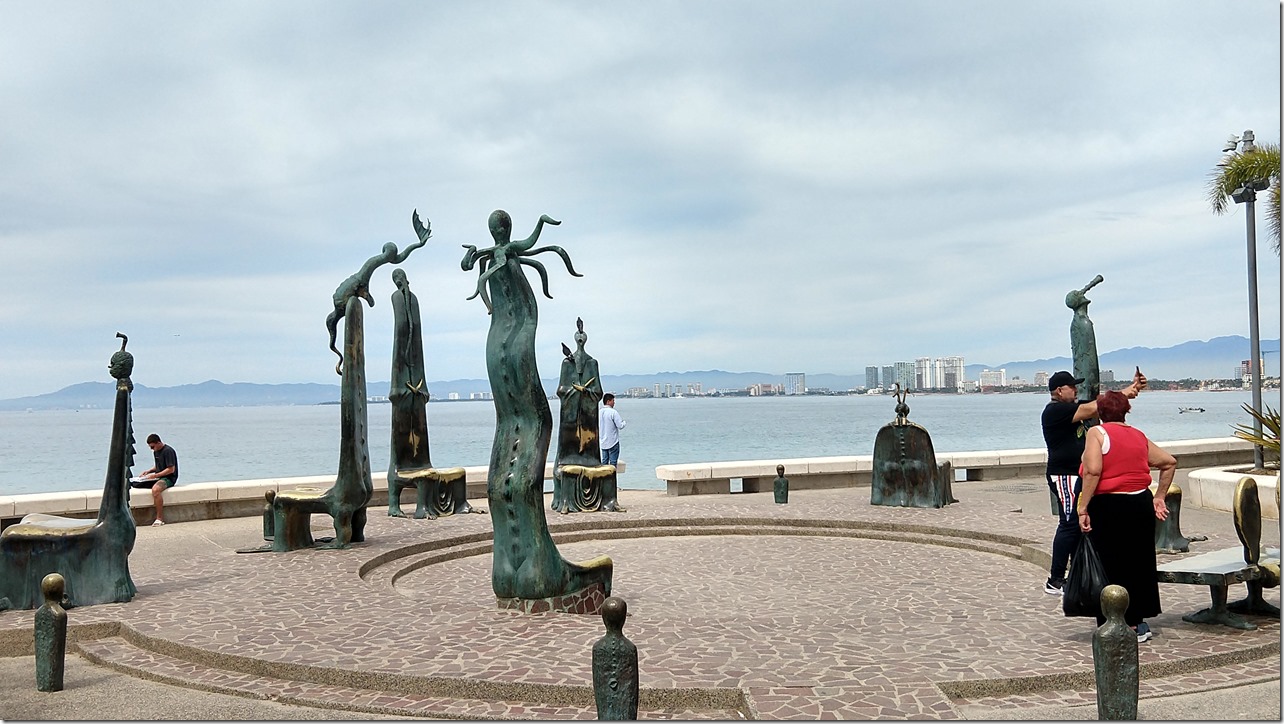
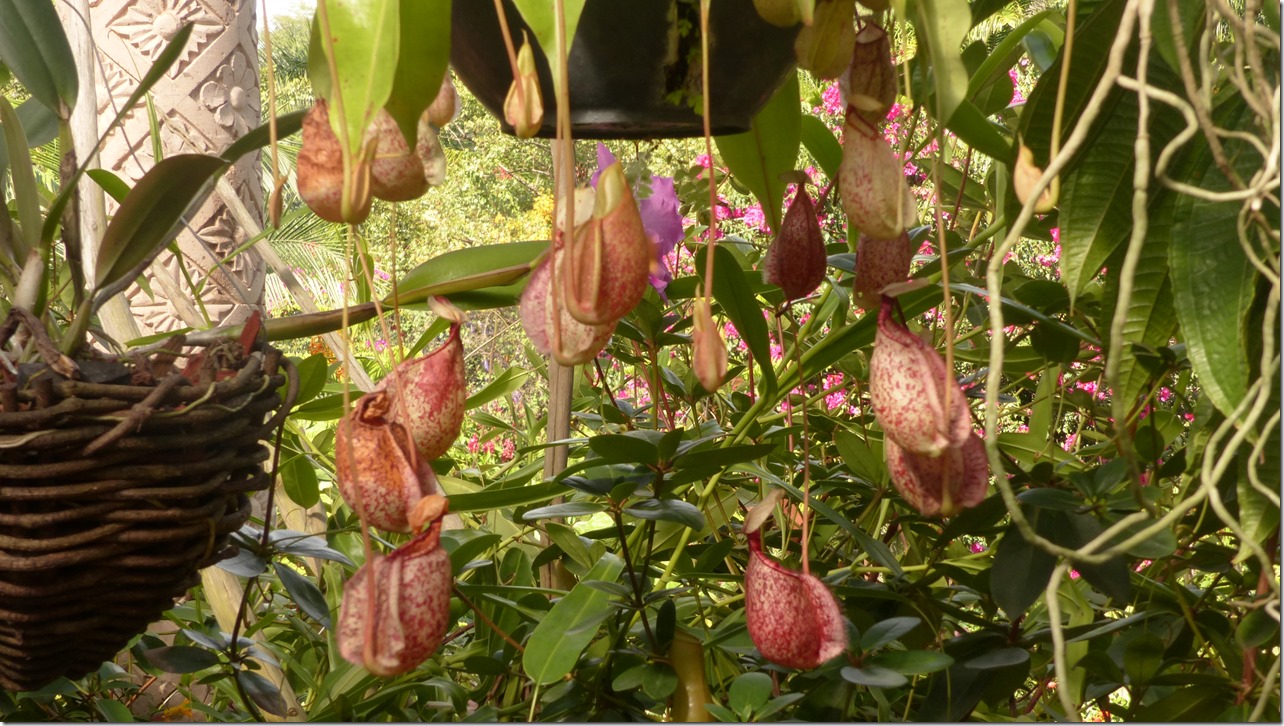
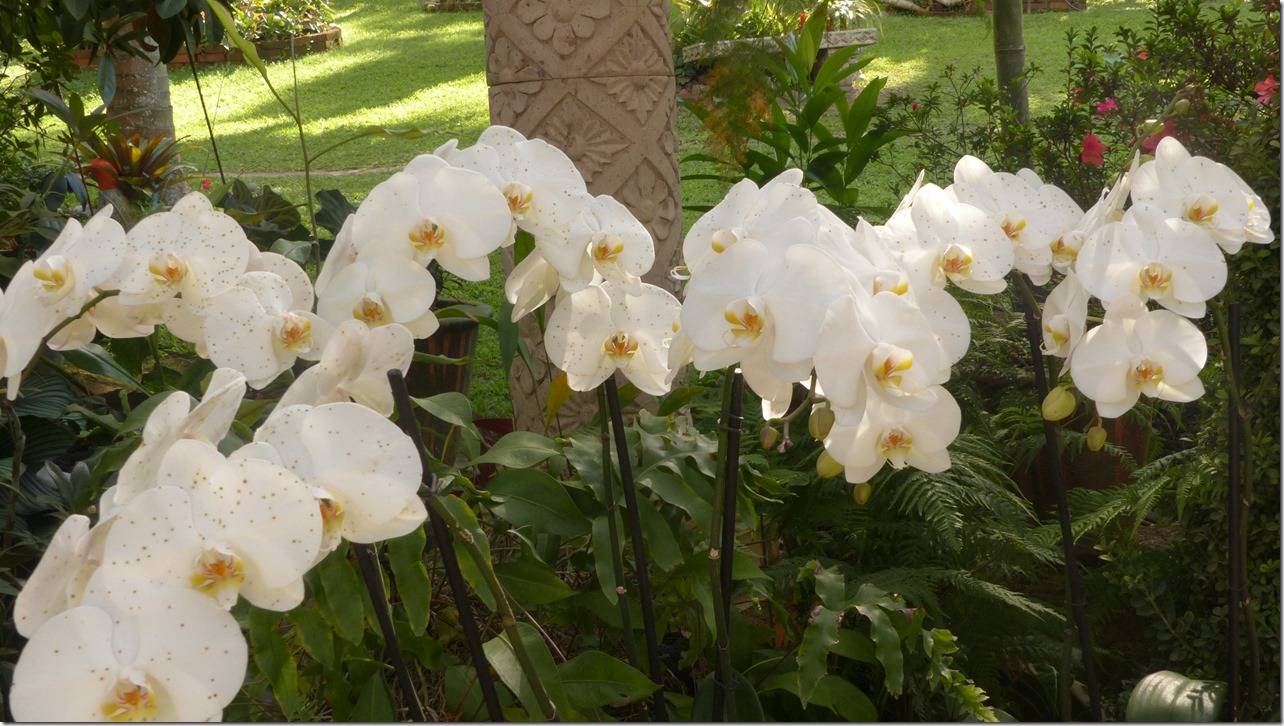
What a dream to be there …. lots of souvenirs for me , but it must have changed a lot since I was there . Keep enjoying this life ! love form Emilia and I
Hey Brigitte! What a pleasure to read you! A big hug to you and Emilia from both Gemma and I.
Sergio
Dear Sergio, dear Gemma!
Thank you for sharing this post! What a great landscape!
When you show the “Copa del Sol” by JR at Cayeres, it reminds me that this is a posh place very a lot of V.I.P.s went for a retreat- 🙂 Lucky you! :))
By the way: it was an Italian (Gian Franco Brignone) who developed Cayeres! 😀
Stay safe and enjoy!
-Lutz
Thank you Lutz! It is such a pleasure to know you keep following us faithfully! Hope all is well with you in these corona days!